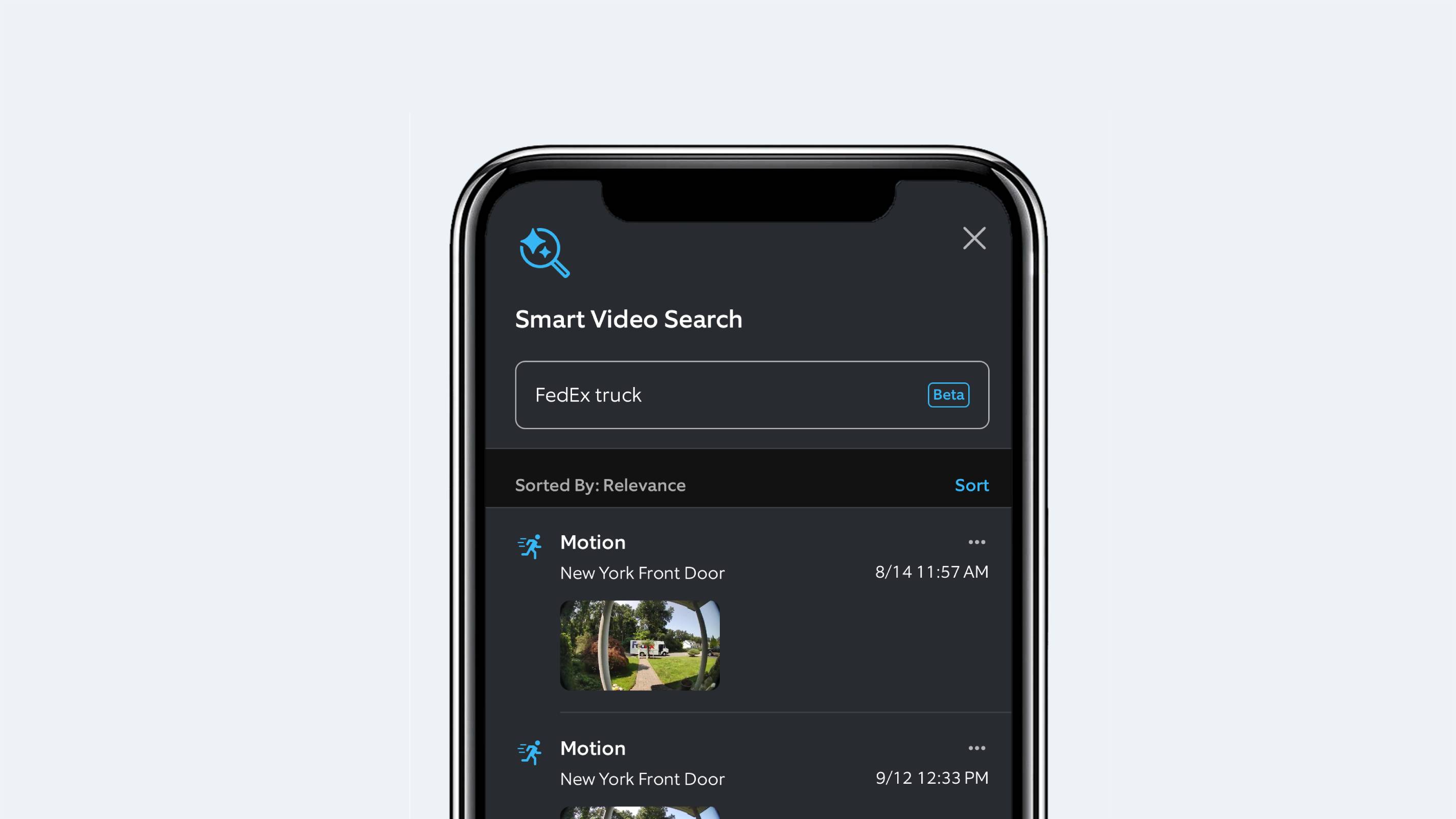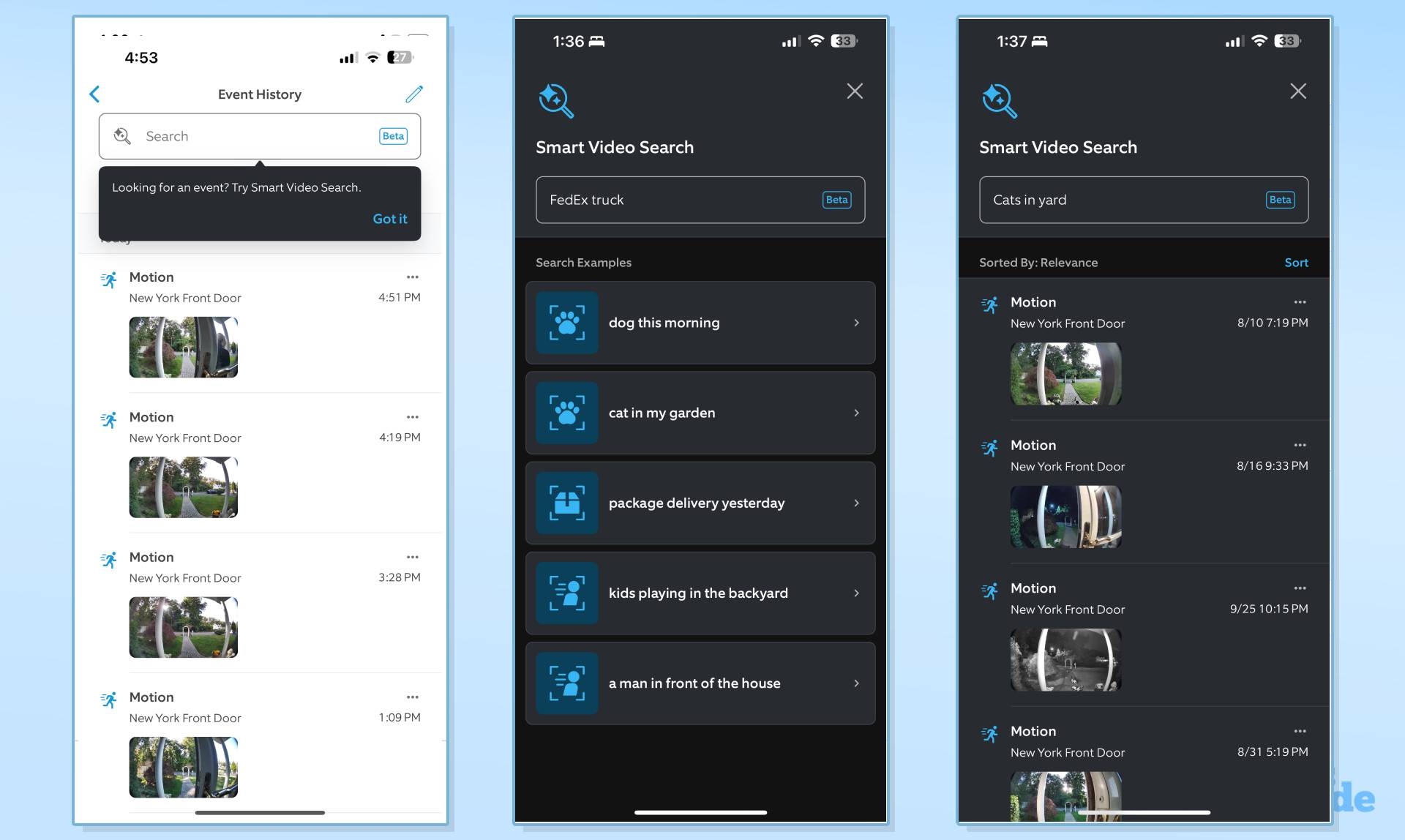I just tried Ring’s new AI Smart Video Search feature and I’m blown away by its accuracy
Ring's subscription fee is slightly more palatable now that you can use text to instantly find the clips you're looking for.

Ring just unveiled its new AI-powered Smart Video Search feature which rolls out in Beta today. This lets you use text prompts to describe what you're searching for and matches it with recordings from any of your Ring cameras. That removes the hassle of sorting through clips across cameras to find a specific subject like a person in a red hoodie or delivery truck.
Smart Video Search will be rolling out in beta on November 5 for camera owners who subscribe to the Ring Home Premium subscription for $19.99 per month.
This feature uses Visual Language Modeling powered by Ring AI technology and in-house expertise to match up text to images quickly. After playing with the Smart Video Search for the past few days, its accuracy and time-saving results have added way more value to my Ring subscription. While the company makes some of the best security cameras and best video doorbells we've tested, they don't support local storage so you have to pay a subscription fee just to keep video recordings in the cloud. This benefit offsets that sting. Here's how it worked under this preview period.
Ring Battery Doorbell with Ring Indoor Cam 2nd Gen: was $140 now $79 @ Amazon
Ring's latest entry-level video doorbell comes with Head-to-Toe vertical coverage so you can see packages and faces even when they're right on top of your door. Its 1080p resolution is crisp enough to zoom in and see details like the text on a package placed at your stoop. The new Indoor Cam (2nd Gen) extends monitoring protection into your home with end-to-end encryption.
After updating my Ring app to the latest version, a search box appeared at the top of my "History" tab. Clicking on it allowed me to enroll my individual cameras with Smart Video Search. After about ten minutes of analyzing my clips over the past six months, I could type hyper-specific text descriptors into the search box to find matching clips.
In my testing, I could search for "FedEx Truck" and "raccoon in yard at night" to instantly find clips of the offenders who set off the motion events. When I tried Wyze's rival AI-Fueled Video Search last month it struggled with searches as vague as "white cat," which Ring passed with flying colors. Ring's more granular AI search takes things even further by taking you to specific timestamps in each clip that match your prompt.
For example, when I typed "cats walking," it didn't just pull up when a single cat popped on the screen. Like a timestamp shortcut on a YouTube video, it took me to the exact moment in time that multiple cats enter the picture to maximize relevancy. While "white dog" accurately spotted my pet, the Wyze results missed some clips that featured the dog front and center earlier in the day.
Ring's search system can identify specific things such as "blue shirt," "man with beard," or "garbage bin," — Wyze AI struggled with attributes. Queries like this were no problem for Ring Smart Video Search, where I could even look for specific animal types or locations. I even typed "pickup truck in the rain" to find my F150 front and center. In fact, the only time it failed to produce a result was when trying to search for specific car models.
Sign up to get the BEST of Tom's Guide direct to your inbox.
Get instant access to breaking news, the hottest reviews, great deals and helpful tips.

This makes finding people, animals, vehicles, or packages in specific locations during certain times of the day effortless so you don't have to look through thumbnails manually. I'm mostly surprised that it hasn't mismatched any of my queries. I expected it to confuse cats with clips of raccoons or dogs, yet the AI is smart enough to differentiate.
Still, there are some caveats. You have to pay for Ring's Home subscription plan, which costs $20/month or $200 a year. On top of that, Ring cameras lack facial recognition like Arlo, Eufy, and SimpliSafe, which have implemented into their systems to notify you of certain people or cars triggering events.
My biggest gripe is that this new search feature will not work with end-to-end encryption enabled. While Ring is not using customer data to train its models, the extra privacy makes me feel better uploading everything to the cloud over local storage.
Overall, Ring's AI search performance is much more reliable, whereas Wyze tends to be hit or miss. From recognizing a "delivery man with a white package" to asking for clips of specific trucks (Amazon, FedEx, and UPS), the deeper context feels fully baked—you'll just have to cough up the monthly subscription fee to use it.
More from Tom's Guide

Hunter Fenollol is a Senior Editor for Tom’s Guide. He specializes in smart home gadgets and appliances. Prior to joining the team, Hunter reviewed computers, wearables, and mixed reality gear for publications that include CNN Underscored, Popular Mechanics, and Laptop Magazine. When he’s not testing out the latest cooking gadgets, you can likely find him playing a round of golf or out with friends feeding his paycheck to a QuickHit slot machine. Hunter started his career as an intern at Tom’s Guide back in 2019 while in college. He graduated from Long Island University Post with a degree in Communications and minor in Advertising. He has been vlogging ever since the iPhone 4 took front-facing cameras mainstream.

